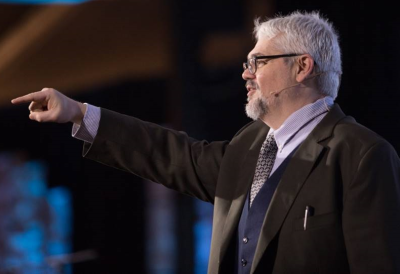Q&A on Big Tech censorship going beyond conservative politics
Earlier this week, we wrote about a troubling new study published by the Napa Legal Institute. The study detailed a growing trend of open censorship of traditionally religious people by Big Tech. You can read our article reviewing the report here, and the report itself here.

Responding by email to our request for comment, Josh Holdenried of the Napa Legal Institute discussed why we should expect more censorship, the “overwhelmingly encouragement” from the general public regarding the report, and the importance of not letting Big Tech bully faith-leaders into silence.
Jerry Bowyer: Is this problem getting worse?
Josh Holdenried: It appears so based on our survey of this space between October 2020 and March 26th of this year [2021]. We are continuing to monitor these instances and update our report accordingly. Our aim is to first accurately document and assess the landscape so that religious organizations can better navigate this issue.
Reporting and commentary on big tech censorship has largely been about conservative viewpoints. We’ve revealed that the issue runs deeper than that and includes religious viewpoints as well.
Jerry Bowyer: Do we know how bad it is, or do we have insufficient data to answer that and so must depend on anecdotal evidence?
Josh Holdenried: We will only know how bad it really is as time continues. This is why we published this report as a live document that can be updated as we continue to track and analyze instances of censorship.
Jerry Bowyer: Have you spoken to these companies? If so, did they respond?
Josh Holdenried: No, we have not. What we are documenting instead is whether those who’ve been censored or de-platformed were able to make direct contact or petition these companies after being locked out.
What concerns us most is that when censorship occurs, companies usually do so quietly or without explanation. We usually see specific reasons for lockouts or shutdowns only after there’s public outcry followed by a forced apology. Simply put, we want to understand whether what’s going on is arbitrary or whether there’s a pattern when it comes to a decision to censor or de-platform religious opinions.
Jerry Bowyer: Are you recommending boycotts or are you instead recommending that customers and shareholders stay engaged and try to influence the companies in the right direction? Or no recommendation at all?
Josh Holdenried: Civic engagement is important, and censorship without explanation is a symptom of a larger problem that is dividing our country. To stop this dangerous trend, the faith community should urge tech companies to engage with sincerely-held religious views and build bridges. Alienating or “otherizing” people of faith will only exacerbate the problem for everyone involved.
The only recommendation we are making at this time is that religious people should not let themselves be intimidated by big tech. They should continue to confidently share their beliefs and speak their conscience. That said, there are several concrete steps in the short-term that faith-based organizations can take as this debate continues to take shape. This includes backing up social media posts, email contacts, online videos, and other information, all of which could be withheld by tech companies. So too should religious groups build strong bonds with like-minded people so they can better organize push-back when tech companies censor or de-platform them. We have a forthcoming action plan that will be published on our website that explains how religious leaders can better protect themselves and their organizations should they find themselves in the crosshairs of big tech censorship.
Jerry Bowyer: What have you heard either from the companies or from the general public since the report and the WSJ piece?
Josh Holdenried: Overwhelming encouragement, as many people were unaware that the censorship issue extends beyond just politics. A few people have pointed out that big tech companies have every right to police their platforms as they see fit. That’s a separate debate (since big tech companies have outsized market power) and some people have mistakenly read this debate into our work. What we are saying instead is that, while big tech companies can do this, it doesn’t mean they should do it. As such, we want to ensure that faith-based groups have every tool available to them to persuade big tech that silencing religious voices is wrong and against the national interest.
Jerry Bowyer: You mention religious groups, but your examples seem to skew towards Christian groups, specifically those which hold traditional views? Are traditional Roman Catholics and evangelicals particularly on the receiving end of this sort of thing?
Josh Holdenried: So far yes, because many of these groups and figures hold views that are openly critical of big tech’s opinions on life, marriage, and sexuality. Consequently, vocal people of religious faith can expect more censorship, especially when big tech is emboldened to do so without accountability or pushback.
Author's note: Many thanks to Mr. Holdenried for responding to our questions. The Napa Legal Institute’s report has detailed the rapid escalation over the past few months in open censorship. As we mentioned in our previous article, corporate engagement – whether that be voting your shares at annual meetings or something as easy as reaching out to the corporation’s investor relations department – is a path any investor who is worried about religious bigotry should consider. We recommend investors and customers think seriously about how they can engage with the big-tech companies responsible for religious censorship.
Jerry Bowyer is financial economist, president of Bowyer Research, and author of “The Maker Versus the Takers: What Jesus Really Said About Social Justice and Economics.”





















